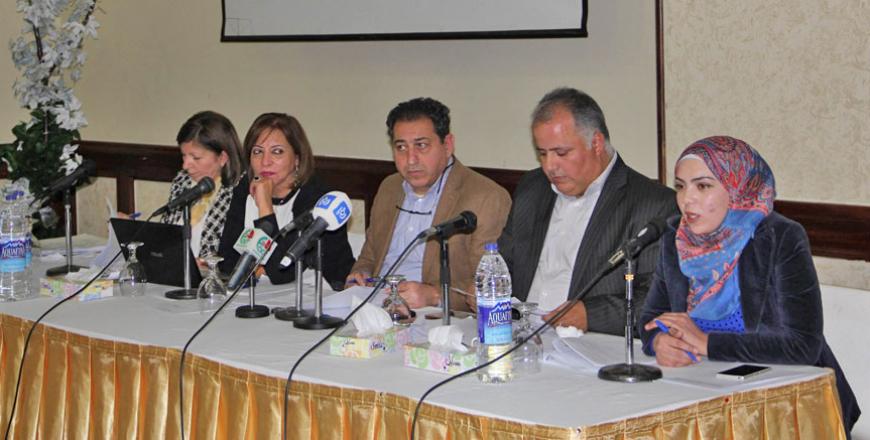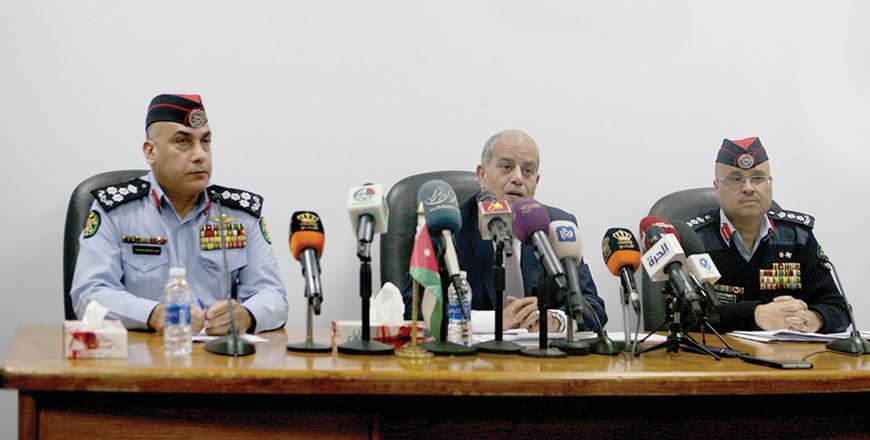You are here
Gov’t to facilitate activists’, journalists’ access to police court hearings
By Rana Husseini - Apr 20,2016 - Last updated at Apr 20,2016
AMMAN — The government’s coordinator on human rights, Basil Tarawneh, on Wednesday said human rights groups and activists will be allowed to attend police court hearings.
“We will coordinate with journalists and human rights organisations to attend court hearings at the police court,” Tarawneh told The Jordan Times.
He added the reason coordination is required is that hearings are held in a small room that fits around 20 people.
“We will facilitate the process for groups and reporters to attend some sessions so that all interested entities can attend part of the proceedings and to be fair to everyone,” Tarawneh explained.
The government coordinator added that this “procedure was there in the past but interest for reporters and organisations grew following reported abuse and torture cases that led to the death of a handful of citizens”.
He referred to the case of Omar Nasr who died last September after allegedly being tortured by the police while in detention.
Another reported case that made headlines included that of Abdullah Zu’bi, 19, who reportedly died shortly after police arrested him last year on alleged drug-related charges following a brief chase.
Three interrogators were charged with using force to extract a confession from the teenager, illegally exercising authority, disobeying orders and violating regulations.
Activists in Jordan have made repeated pledges to end incidents of torture, describing it as a crime against human dignity and a grave violation of human right principles.
In November last year, Public Security Department (PSD) Director Maj. Gen. Atef Saudi said, “abuse and torture at our stations are not part of our strategy and anyone found guilty of such conduct will be punished severely.”
“We have already imprisoned several police officers who were found guilty of abuse,” he added.
Stressing that there is no tolerance for torture, Saudi cited several measures adopted by his department to further ensure the safety, security and human rights of individuals.
He made the remarks during a meeting with 150 representatives from civil society and human rights institutions.
At the time, Tarawneh acknowledged “that there are gaps or misconduct by a handful of individuals at the PSD”.
But what is more important, he added, “is finding proper solutions to address these issues and ensure that they never happen again”.
Jordan is a state party to the Convention Against Torture and Other Cruel, Inhuman or Degrading Treatment or Punishment.
Last November, Jordan submitted its report on the implementation of the convention, which was reviewed by the Committee Against Torture at its 56th session.
The panel cited many shortcomings, with the major one being Jordan’s definition of torture, calling for adopting one that covers all elements outlined in the convention and ensures that torture is a crime rather than a misdemeanour.
Furthermore, the panel urged the government to “ensure that the principle of absolute prohibition of torture is incorporated in its legislation”.
On the bright side, the UN committee commended the Kingdom for adopting legislation in relevance to the convention, such as laws on juveniles, independence of the judiciary and the Constitutional Court.
It also welcomed the establishment of a national register for cases of torture at public prosecution offices, the adoption of the National Strategy to Combat Human Trafficking and the holding of two international conferences on torture prevention and alternatives to pre-trial detention.
Related Articles
AMMAN — Deemed a crime against human dignity and a grave violation of human right principles, torture must become a socially rejected practi
AMMAN — A national alliance of civil society organisations on Tuesday called on the government to take several measures to improve the human
AMMAN — Some individual cases of torture cannot be elevated to the status of "systematic approach" by the state and it is unfair to make a g



















